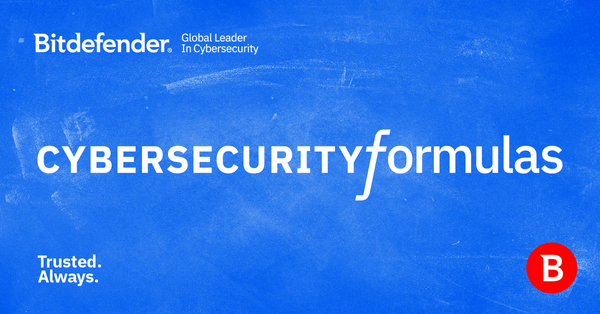Protecting Your Important: Establishing smart cyber habits to safeguard kids' privacy and security online

Cyber Security Awareness Month offers a chance to show people how simple it can be to develop efficient and cyber-smart habits to secure the digital lives of families.
It’s not just IT workers and big businesses that need to worry about cybersecurity - the threats of the digital world affect all of us, including our children.
As kids spend more time online, protecting them from cyber threats and malicious individuals has become a crucial undertaking that often catches parents off guard.
This October, you too can make the most of our easy-to-use guide to defend your family and kids from cybercrooks and other internet-based threats to your privacy, security and finances.
Let’s take a look at some basic online habits you can implement with your children:
1. Find a balanced screen time for your kids
Research shows that the average daily screen time for kids 8 to 10 years of age is around 6 hours. As kids grow older, the time spent in front of a screen can even exceed 9 hours per day, so finding a balance is key to protecting their information and overall health.
Although there are clear benefits to kids using technology to learn and interact with their peers, too much screen time can harm children’s perception of reality and their mental health. More screen time also means that the chance of kids falling victim to online threats also increases.
Set healthy screen-time limits so kids can fully disconnect from their devices frequently and engage in offline activities. Create realistic goals and establish technology-free zones for kids when they are at home. For example, young children and teens should not take smart devices into their rooms at bedtime, especially when unsupervised.
2. Educate kids on how to safely engage on social media and other online platforms
We’ve often underlined that kids under the age of 13 should not use social media platforms. Despite 13 being the minimum age to sign up and find a profile, many young kids continue to use and engage with strangers on social media platforms unaware of the many risk factors: exposure to dangerous and mature content, cyberbullying, online scams, predators and much more.
Many digital miscreants lurk on social media where many children engage in careless activities without thinking of the consequences.
If your child is of the appropriate age to use these platforms, ensure that they stick to these crucial safety rules:
- Keep accounts private and never connect or interact with strangers. Check the privacy settings on their accounts together, and as frequently as possible.
- Never share personal information online, including photos, videos, home addresses, phone numbers, SSN and credit card numbers, or provide their real-time location to anyone
- Use strong and unique passwords for their accounts
- Always remain vigilant and immediately report any suspicious activity or messages
- Report cyberbullying or any other forms of harassment
- Keep a clean digital footprint by not sharing or distributing inappropriate media files or engaging in nasty conversations online. Teach kids that whatever they say or do online leaves a digital trail that can be traced back to them, even if they delete the message or post.
3. Talk about phishing, malware and other social engineering tactics
App stores often hide malicious applications that threaten the privacy and security of your kids. Teach kids to never download applications without asking permission and discuss particular red flags that may suggest a scam or social engineering attack.
Make sure kids fully understand that they should not click on pop-ups that appear on their screen with offers gifts or claims of a security threat. Neither should they interact with any form of unsolicited correspondence or messages from strangers that may contain attachments or links.
Frequently remind children that nothing is truly free, in both the digital and physical worlds, and that they should always ask an adult before engaging with any messages or individuals they meet online.
You and your family can stay cyber-smart this October and beyond by opting for a Bitdefender all-in-one plan.
PROTECTING YOUR IMPORTANT: you get complete malware protection for up to 10 devices in your household, VPN with unlimited traffic, and a handy Password Manager. Additionally, Bitdefender solutions come with Parental control features that can help children regulate their own online behavior and protect them from harm, as well as webcam protection features that identify whether your PC or laptop’s camera is being misused by individuals and other applications.
tags
Author
Alina is a history buff passionate about cybersecurity and anything sci-fi, advocating Bitdefender technologies and solutions. She spends most of her time between her two feline friends and traveling.
View all postsRight now Top posts
Fake Download of Mission: Impossible – The Final Reckoning Movie Deploys Lumma Stealer
May 23, 2025
Scammers Sell Access to Steam Accounts with All the Latest Games – It's a Trap!
May 16, 2025
How to Protect Your WhatsApp from Hackers and Scammers – 8 Key Settings and Best Practices
April 03, 2025
FOLLOW US ON SOCIAL MEDIA
You might also like
Bookmarks







